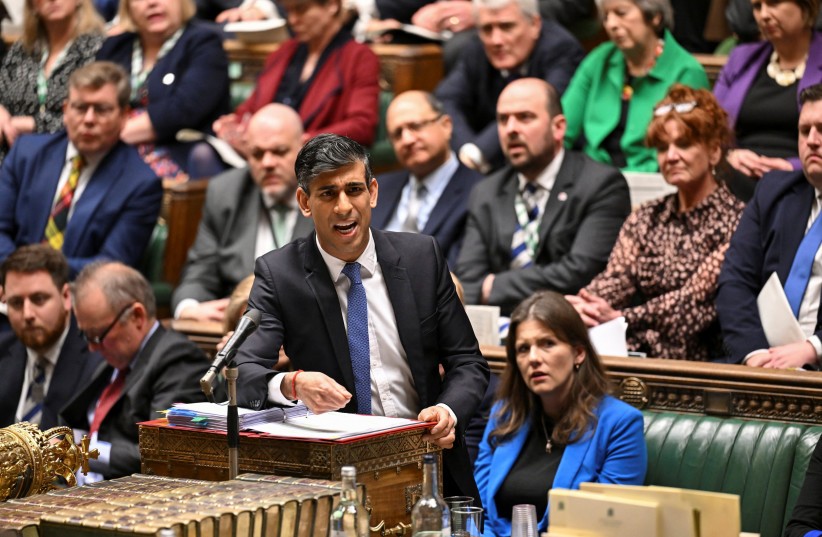Pro-Palestinian protesters and politicians responded in outrage on Wednesday when a United Kingdom parliamentary debate and vote on a Scottish National Party motion calling for a ceasefire in Gaza ended with the adoption of a Labour Party amendment.
The SNP had put forward a call “for an immediate ceasefire in Gaza and Israel,” condemned plans for an Israeli military assault on Rafah, called for the release of Hamas’s Israeli hostages, demanded an “end to the collective punishment of the Palestinian people” and said that the only way to stop the slaughter of innocent civilians is to “press for a ceasefire now.”
In a breaking of procedure by allowing one opposition party to amend the motion of another, House Speaker Sir Lindsay Hoyle allowed the proposals for amendments by the Labour and Conservative Parties. MPs roared with disapproval as Hoyle explained that the Labour amendment would be voted on first.
A highly sensitive subject takes parliament
“This is a highly sensitive subject in which feelings are running high, in the House, in the nation, and throughout the world,” Hoyle said before the debate. “I think it’s important on this occasion that the House is able to consider the widest possible range of options.”

SNP MP Owen Thompson demanded to know what the point of having an opposition day for his party was if another opposition party’s amendment for their motion would be voted on.
After almost five hours of debate, the Labour Party’s amendment was adopted in an informal vote with a chorus of “ayes,” and the SNP motion did not see a vote.
The Labour amendment put less onus for cessation of hostilities on Israel, saying that Hamas needed to return hostages during a humanitarian ceasefire, but that “Israel cannot be expected to cease fighting if Hamas continues with violence and that Israelis have the right to the assurance that the horror of 7 October 2023 cannot happen again.”
After the vote, Hoyle defended his decision as being motivated by his concern for the “security of all members.”
SNP MP Stephen Flynn alleged that Hoyle, a former Labour member, had colluded with Labour Party leader Keir Starmer to block the vote for the more strongly worded motion. SNP social media shared allegations that Starmer sought to avoid a split in his party over voting for the SNP motion. SNP leader Humza Yousaf said that the Westminster system was broken by the event, but pleased that the House called for a degree of ceasefire.
“I’m proud of the SNP for bringing demands for an immediate ceasefire to the Commons, forcing Labour to change their position, which I welcome,” Yousaf said in a statement. “The suffering has to end. There must be an immediate ceasefire; enough is enough.”
